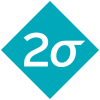The future of Jupyter in education
A rich community has gelled around teaching with Jupyter. There’s a substantial ecosystem of tools and infrastructure aimed at teaching with Jupyter, and enthusiasm for developing lessons, tutorials, and full courses with Jupyter keeps growing.
Join this panel of seasoned educators and the cochairs of the education track at JupyterCon to look to the future of Jupyter in teaching and learning. Now that many educators are using Jupyter, the panel members reflect on what works and what doesn’t and share research-based pedagogical best strategies, such as chunking and scaffolding.

Carol Willing
Cal Poly San Luis Obispo
Carol Willing is a research software engineer at Cal Poly San Luis Obispo working full-time on Project Jupyter, a Python Software Foundation fellow and former director, a Jupyter Steering Council member, a geek in residence at FabLab San Diego, where she teaches wearable electronics and software development, and an independent developer of open hardware and software. She co-organizes PyLadies San Diego and San Diego Python, contributes to open source community projects, including OpenHatch, CPython, Jupyter, and AnitaB.org’s open source projects, and is an active member of the MIT Enterprise Forum in San Diego. She enjoys sharing her passion for electronics, software, problem solving, and the arts. Previously, Carol worked in software engineering management, product and project management, sales, and the nonprofit sector. She holds an MS in management with an emphasis on applied economics and high-tech marketing from MIT and a BSE in electrical engineering from Duke University.
Natalia Clementi
The George Washington University
Natalia Clementi is a PhD student at the George Washington University.

James Colliander
Pacific Institute for the Mathematical Sciences
James Colliander is a professor of mathematics at UBC, director of the Pacific Institute for the Mathematical Sciences, and the founder and CEO of Toronto-based education technology company Crowdmark. James’s research intertwines partial differential equations, harmonic analysis, and dynamical systems to address problems arising from mathematical physics and other sources. Previously, he was an NSF postdoc at the University of California Berkeley, a professor at the University of Toronto, and a professeur invité at the Université de Paris-Nord, Université de Paris-Sud, and at the Institut Henri Poincaré. He has been a member of the Institute for Advanced Study. James has been recognized with a Sloan fellowship and the McLean Award and as an award-winning teacher. He holds a PhD from the University of Illinois.

Allen Downey
Olin College of Engineering
Allen Downey is a professor at Olin College and the author of Think Python, Think Stats, Think Bayes, and more. He writes about statistics in his blog Probably Overthinking It.
Jason Moore
UC Davis

Danny Caballero
Michigan State University
I’m a physics education researcher who studies how tools and science practices affect student learning in physics, and the conditions and environments that support or inhibit this learning. I conduct research from the high school to the upper-division and am particularly interested in how students learn physics through their use of tools such as mathematics and computing. My work employs cognitive and sociocultural theories of learning and aims to blend these perspectives to enhance physics instruction at all levels. My projects range from the fine-grained (e.g., how students understand particular elements of code) to the course-scale (e.g., how students learn to model systems in electromagnetism) to the very broad (e.g., how does computing affect learning across a degree program?). Presently, I co-direct the Physics Education Research Lab at MSU.
Comments on this page are now closed.
Sponsorship Opportunities
For exhibition and sponsorship opportunities, email jupytersponsorships@oreilly.com
Partner Opportunities
For information on trade opportunities with JupyterCon, email partners@oreilly.com
Contact Us
View a complete list of JupyterCon contacts
©2018, O'Reilly Media, Inc. • (800) 889-8969 or (707) 827-7019 • Monday-Friday 7:30am-5pm PT • All trademarks and registered trademarks appearing on oreilly.com are the property of their respective owners. • confreg@oreilly.com










Comments
Looking forward to this!